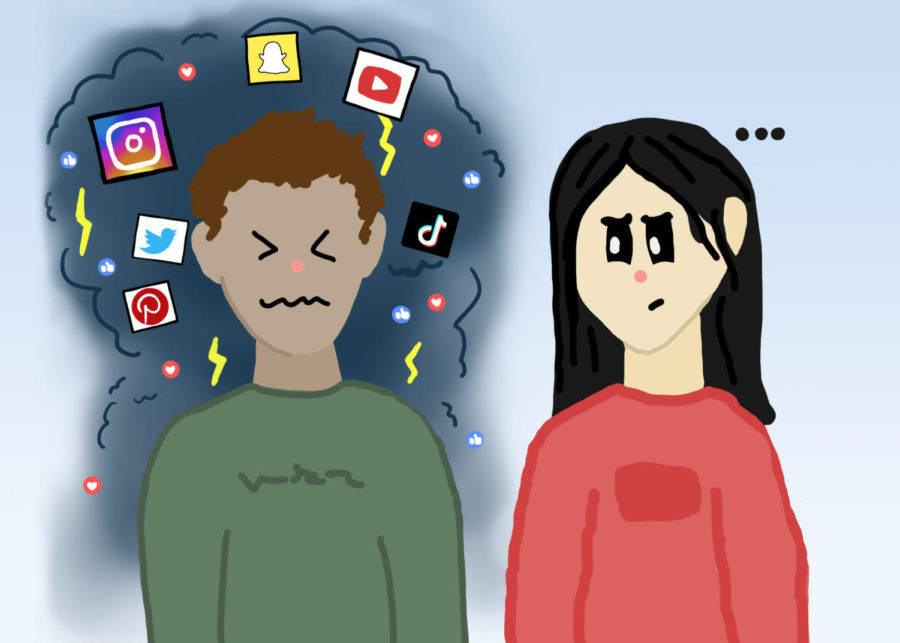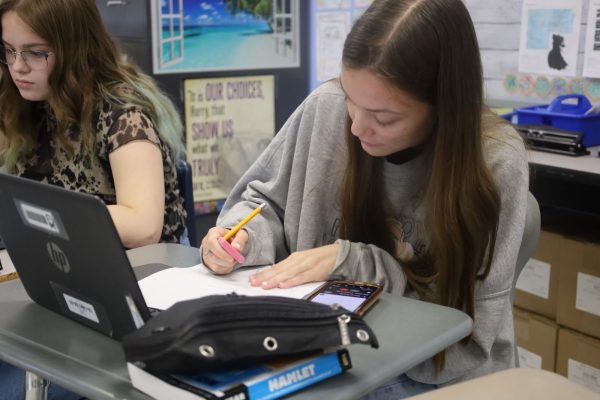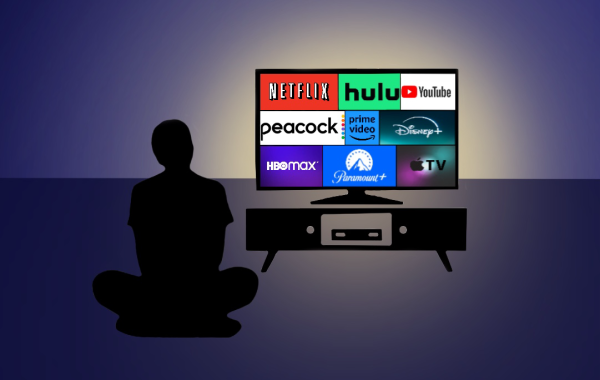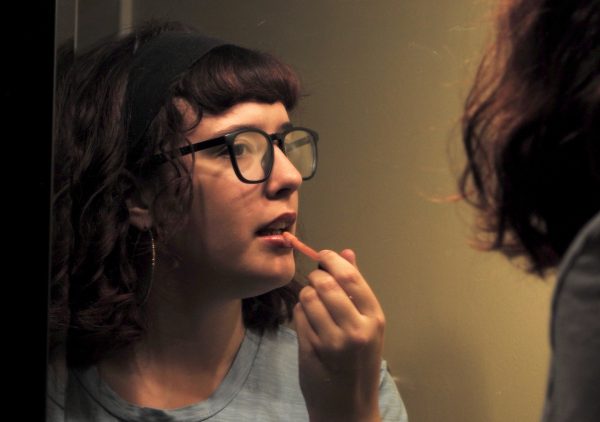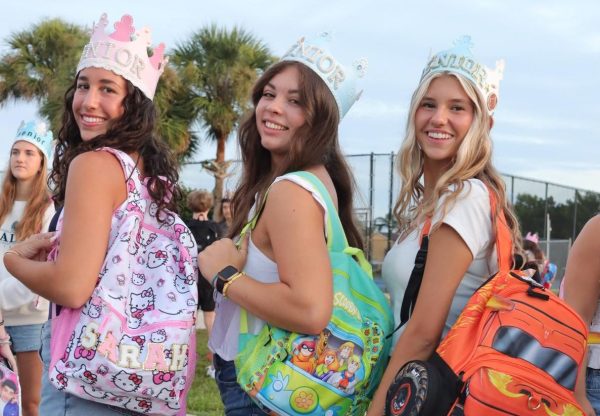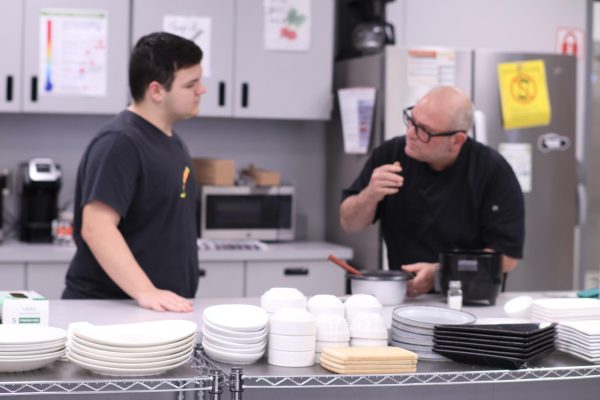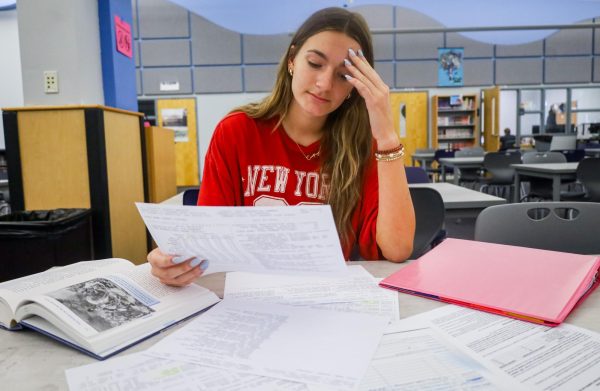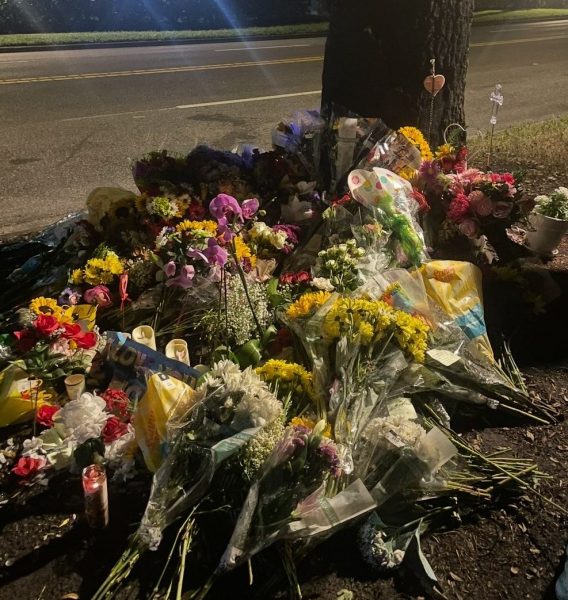Anti-socials
Despite popularity, students have negative feelings towards social media
photo by Alexis Madlang
Social media platforms are extremely popular among high school students. However, some believe that they are harmful.
Rolling out of bed, sophomore Levi Cal unlocks his phone to check his Instagram feed, answer Snapchats and scroll through TikTok. At the same time, freshman Michael Pang gets ready for school, not giving a thought to social media.
According to the American Academy of Child and Adolescent Psychiatry, 90 percent of 13–17-year-olds have used social media, and 75 percent have at least one active social media account. The surprising part may be that 25 percent do not have an active account, and 10 percent have never used social media. Pang’s main concern is the lack of privacy the internet provides.
“I don’t want to get social media because I am not comfortable sharing information about myself online,” Pang said. “Not having it makes me feel more secure.”
Many fear that the use of social media can lead to the loss of communicative skills. The Liberty Classical Academy says that people can become so comfortable with texting and emailing that their verbal communication skills decay, causing awkward face-to-face interactions to occur and surface-level relationships to form. Cal feels that relationships formed through social media lack sincerity and depth.
“Social media has helped me meet new people, but it’s extremely consuming,” Cal said. “It’s harder to have conversations in-person than it is over text.”
Although social media is important in some students’ lives, it does not make the world go round for everyone. Sophomore Rylee Rozier, who does not have social media, says that she does not care about its absence from her life.
“Not having social media hasn’t had any sort of negative impact on me,” Rozier said. “It hasn’t affected me much.”
Other students do not have social media because their parents forbid them from getting it until they reach a certain age. Junior Ariana Seguinot was allowed to download certain platforms once she turned 16. Though she is happy to have it now, Seguinot is glad she was not exposed to social media in her younger years.
“As a kid, I was able to stay focused on school, the activities I enjoy, and not get involved in internet drama,” Seguinot said. “Social media would have been a distraction.”
The harmfulness of social media platforms is an issue for many and can have an overwhelmingly negative effect on the mental health of teenagers, according to the AACAP. Between “cancel culture” and the rapid spread of hurtful messages, Pang believes that it is important for him to stay clear of social media altogether.
“Social media is very toxic,” Pang said. “I have seen inconsiderate and sometimes outright harmful things that people have posted without a second thought, so I choose not to engage.”
Social media can also set harsh expectations for beauty, life and relationships. Influencers and models tend to misrepresent their “perfect” life, which leads to unrealistic standards among their teenage followers. Seguinot says that she avoids looking at some accounts and posts to preserve her self-esteem.
“On Instagram especially, I try not to look at certain things that I know will hurt me or make me think of myself as less,” Seguinot said.
Not everyone has negative feelings about social media. Junior Gwen Shaw says that her life has improved greatly since getting more involved with these platforms, as she can find funny memes and build stronger bonds with her peers.
“I know that social media can be toxic, but that has not been my experience,” Shaw said. “I’ve seen a lot of positivity and support for others.”
Another pro of using social media is having access to important information regarding school, activities and events. Most clubs, honor societies and organizations have Instagram pages where they share news and updates. Sometimes, Rozier feels “out of the loop” with school information.
“I am involved in theatre at school and they post information about their events on Instagram, which I can’t see,” Rozier said. “I have to ask my friends for that information. It gets tiring having to repeatedly ask them.”
All considered, social media is a double-edged sword that can connect or disconnect one from their community—and from reality. Seguinot thinks that these platforms are not for everyone, and it is important to take your own needs into consideration.
“The more involved you are in social media, the more toxic it can become,” Seguinot said. “It will affect you as much as you let it.”
Your donation will support the student journalists of Hagerty High School. We are an ad-free publication, and your contribution helps us publish six issues of the BluePrint and cover our annual website hosting costs. Thank you so much!

